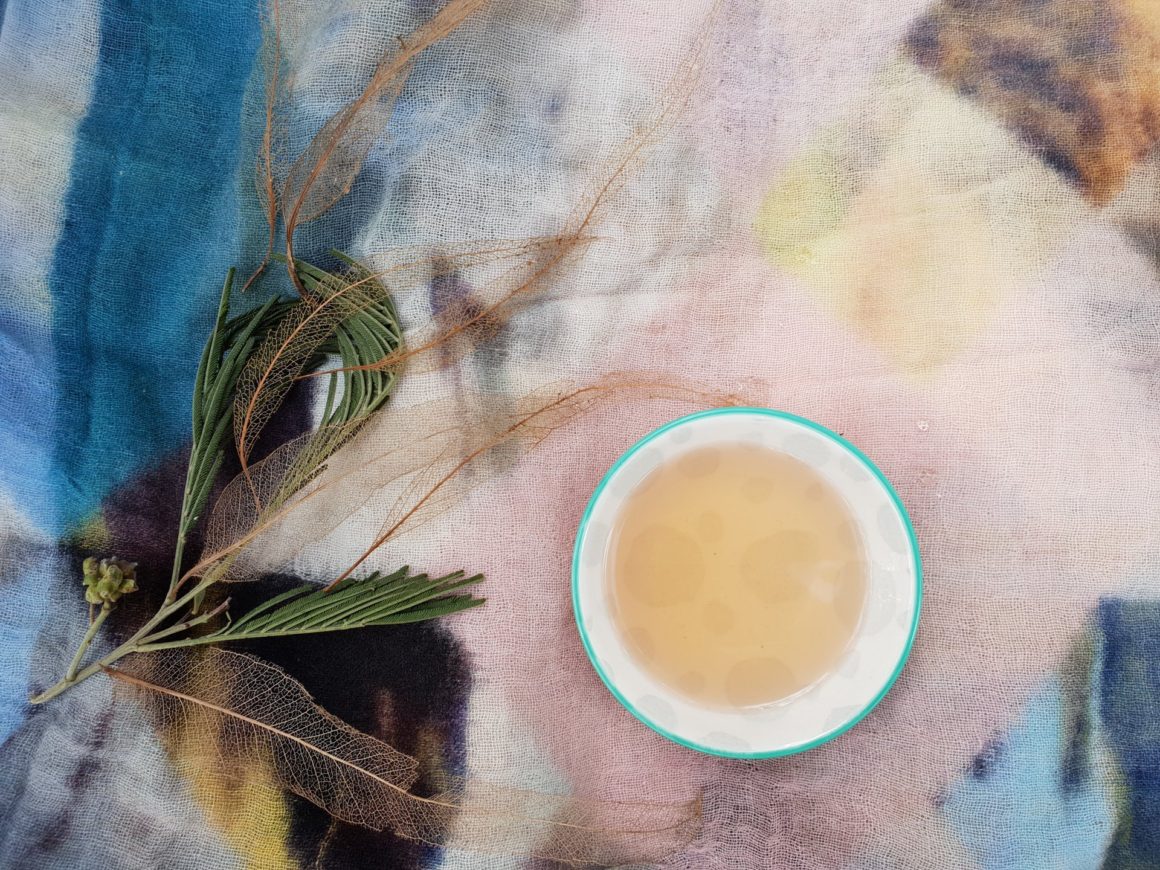Nature is the ultimate provider. In Australia especially, there is so much we humans get out of being outside in green space, whether we know it or not. Many of us swim, walk, cycle and drive through the local natural wonders of our cities and states. Recreationally speaking, nature gives us so much; there is never a shortage of things to do in Australia’s Great Outdoors.
For Nita McIntyre, spending time in nature isn’t just recreational – it’s therapeutic as well. A certified forest therapy guide, Nita is passionate about bringing the benefits of time spent in nature to city dwellers. ‘The aim of forest therapy is to be more receptive to nature through your senses,’ Nita explains. Also known as forest bathing or Shinrin Yoku, forest therapy began in Japan in the 1980s. It’s an engaging means of connecting people with nature and improving personal wellbeing, with many studies highlighting the health benefits of these kinds of therapy programs. From reducing blood pressure and stress to improving immunity and mood, the rising popularity of forest therapy comes as no surprise when one takes into account its many proven advantages.
Nita completed her forest therapy training through the Association of Nature and Forest Therapy: an organisation based in the United States that holds training courses around the world. Through her employment at Milparinka, a community organisation in Melbourne that works with people with disabilities, Nita recognised that forest therapy may be highly beneficial to some of the people she was seeing on a regular basis. Nita’s work with Matthew, a young man on the autism spectrum, has been especially influential. Specifically, Nita noticed that her and Matthew’s weekly walks in Gresswell Forest, a nature conservation reserve located to the north-east of Melbourne’s CBD, seemed to affect Matthew’s mood and behaviour in positive ways. ‘It’s a lovely thing to see someone with sensory issues find calm in nature,’ Nita says.

Nita’s personal experiences and subsequent training have resulted in the establishment of Bush Connections, a program that combines forest therapy with conservation work for Parks Victoria which has been running since 2017. ‘For a whole raft of reasons, sometimes including mobility issues or marginalisation, many people with a disability have roadblocks to spending time in nature. The mental and physical health benefits of time spent in nature are well documented, so I think there’s a real need to increase the rates of people with a disability having access to nature and these benefits.’
The Bush Connections program involves weekly visits to Gresswell Forest and begins with morning tea alongside an impressive wooden hut, built by participants using fallen branches, and then some on-ground conservation work such as weeding or planting. Later, there might be a slow walk through the forest and then lunch, followed by a sensory activity, a relaxing rest under the trees, and, lastly, a tea ceremony. The tea ceremony is of particular importance, being a traditional part of Japanese forest therapy and allowing the group to end the day on a quiet, reflective note; participants drink tea that consists of the plants that have surrounded them during their walk, such as River Mint and Black Wattle. The tea is meant as the last sensory immersion for participants; they literally drink in the nature around them. A cup is also poured for the forest itself – a symbol of gratitude for time spent in nature.

With the assistance of Parks Victoria ranger Simeon Buckley, the conservation work has been just as rewarding as the forest therapy portion of the program for many attendees. This working relationship with Parks Victoria has proved vital, as it has provided the opportunity for those in the Bush Connections program to give back and learn more about the environment they’re spending time in. ‘Getting Parks Victoria on board has been fabulous,’ Nita says. ‘A huge part of forest therapy is building up a reciprocal relationship to nature.’
Simeon agrees, explaining that his primary aim as a Parks Victoria ranger is to encourage as many people as possible to engage with nature. Gresswell Forest is the ideal place to do this, ‘a true hidden gem’ as Simeon describes it. ‘There’s an amazing array of grasses and wildflowers,’ he says. ‘When you’re in Gresswell Forest it feels like you’re way out in the bush.’ In fact, the reserve is located within the busy Melbourne suburb of Bundoora. Gresswell Forest has a long history as an educational and therapeutic nature reserve – the area was used to help treat returned WW1 and WW2 soldiers with PTSD. This is a legacy which Nita and Simeon have been able to continue through the Bush Connections program.
‘As an organisation, Parks Victoria works to reduce the many physical, social and cultural barriers currently experienced by people with disabilities and the Bush Connections program helps achieve this,’ Simeon says. He believes that Bush Connections has in fact been one of the most successful and productive volunteer programs in the recent history of Gresswell Forest, benefiting the attendees themselves as well as contributing important conservation work. In particular, Simeon has been working with Nita and her clients on a wildflower restoration project within the reserve. ‘The participants have hand-weeded the whole four-hectare wildflower area, an impressive task. That job would take one person many months to complete,’ he says. ‘It’s so rewarding to see how much enjoyment and fulfilment the participants get from the program. They have really taken ownership of the wildflower project.’

As well as the conservation work being done with the help of Parks Victoria, participants of Bush Connections have also been involved in citizen science projects, such as Melbourne Water’s Frog Census, and will potentially begin work on setting up a Murnong, or Yam Daisy, patch in 2019 to strengthen the program’s relationship with the Wurundjeri people of Victoria.
Bush Connections has also led to one participant, Rainer, becoming a regular Parks Victoria volunteer at another of Melbourne’s parks. Nita explains that as someone who struggles with OCD, Rainer benefits from the physical work and enjoys being a valued member of the Parks Victoria team. ‘He loves directing his energy towards something good,’ Nita says.
Rainer explains that the work he’s been involved with at Gresswell Forest will hopefully ‘encourage healthy habits by improving walking tracks.’ It’s easy to take the seemingly natural paths we tread in local parks and reserves for granted, but it’s clear that plenty of work goes into their construction, especially at Gresswell Forest where visitors like to walk amongst the stately eucalypts and feel pleasantly solitary within the quiet green space. The path that Rainer and his fellow volunteers have been assisting with will hopefully soon become a boardwalk so that ‘we can do a wander around to see all the frogs,’ Rainer says. The boardwalk will also allow better access to the wildflower patch that the group has been working tirelessly to restore.
Every participant comes away with something different; no two experiences in Gresswell Forest are ever the same. Nita describes how another participant, Mark, spends his time outdoors. ‘Mark has autism and is largely non-verbal so he experiences it in a totally different way. He’s spent the first month just examining tree trunks really carefully… He was examining things up close and he would find a spot to just lie back and look at the sky.’
Another regular attendee, Abby, says that she finds the Bush Connections experience relaxing and that she especially enjoys sitting and drinking tea in the forest, as well as getting involved in the more gruelling work of weeding that sometimes comes before. She also fondly remembers the time spent building the hut next to which the group often eats morning tea.

Bush Connections has also been extremely beneficial for Nita and other Milparinka employees who regularly help out at Gresswell Forest. ‘I nearly always come back feeling better than I did before I left,’ Nita says. ‘It’s led me to experience nature differently.’ Especially following her initial walks in Gresswell Forest with Matthew, Nita has been encouraged to see the natural world through a different lens. ‘[Matthew’s] different way of experiencing nature, often silent and sensory-based, led me to see the environment around me differently also.’
It’s easy to see why Bush Connections participants, Parks Victoria staff, and visitors to Gresswell Forest keep coming back. This place is truly special, tucked away in the back streets of Melbourne suburbia and containing areas of diverse green surroundings where people can walk, birdwatch, admire the wildflowers or just sit and be. Bush Connections harnesses the incredible ability of this place to make a difference, whether big or small, to the lives of those who spend time there. ‘I think the interesting thing about the program or Forest Therapy in general is that people just get it straight away. It’s a really human thing,’ Nita says. ‘It’s not about people with disabilities… Everyone struggles with modern life and anxiety. When I tell people about [Bush Connections] I’ve just been interested by how many people immediately get it. A lot of people know the benefits of spending time in nature intuitively.’
Bush Connections currently runs on Mondays, Fridays and some Sundays, with individual arrangements made by appointment. If you’re interested in joining the program or finding out more, please contact Nita at [email protected]
Some names in this article have been changed to protect the privacy of individuals.
Banner image courtesy of Nita McIntyre.


Leave a Reply